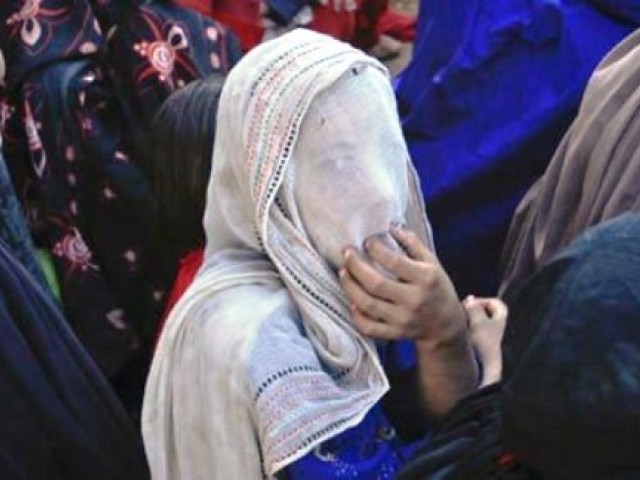
SHABQADAR: There are hyperboles galore when it comes to the Federally Administered Tribal Areas (Fata) – widely seen as the most neglected, impoverished and alienated region in Pakistan. Millions of tribesmen living there don’t have the constitutional rights enjoyed by their compatriots elsewhere in the country.
This leads to the assumption that these tribesmen are lesser Pakistanis – and their women are perhaps lesser so. Until 1997, in Fata, only government-anointed Maliks had the right to vote, while the rest of Pakistan elected their representatives in parliamentary elections.

Though adult suffrage was extended to Fata through a presidential decree before the 1997 elections, tribal women are still disenfranchised as conservative candidates there cut deals before every election against allowing women to vote.
Fata women are denied their constitutional and legal rights to receive education, participate in politics and secure employment. In the lower house of parliament, Fata is represented by 12 MNAs – but, unlike the rest of Pakistan, there is no quota for women. Successive governments promised the tribal areas political, legal and social reforms – but none of those promises were kept.
“Fata tribesmen have been ignored by every government, including the incumbent one. These tribesmen are considered lesser human beings in Pakistan,” Bushra Gohar, a former lawmaker of the Awami National Party (ANP), said while talking to The Express Tribune. “Even the lawmakers from Fata have no power to legislate for their region,” she added.

“We have been pushing for an amendment in the Constitution – abolition of Articles 246 and 247 to be specific – in order to empower Fata lawmakers to legislate for their region.” Gohar also said that tribal women have also been denied the rights guaranteed in the Constitution. “There must be seats reserved for tribal women in the federal as well as provincial legislatures of Khyber-Pakhtunkhwa,” she added.
However, she says that constitutional changes were needed first to empower the Fata lawmakers, because a women’s quota would be useless, if the Fata legislators could not legislate for their region.
Aisha Gulalai, a member of the lower house of parliament from PTI, concurred with Gohar. “Fata tribesmen are considered as second class citizens in Pakistan and Fata has been ignored since the creation of Pakistan,” Gulalai told The Express Tribune. “Fata women are second to none in terms of potential – but regrettably they cannot raise their voice for their rights.”
Gulalai claimed that her party has raised this issue on several forums, including the parliament, but to no avail. “By reserving a quota for Fata women in parliament, we can give them a forum where they can raise their issues and problems.”
Legal experts agree that Fata tribesmen are denied the rights guaranteed in the 1973 Constitution. “Under Article 1 of the Constitution, Fata is part of the state of Pakistan. But strangely enough, under Article 247 Fata tribesmen have been deprived of the fundamental rights enjoyed by their compatriots elsewhere in the country under Articles 8 to 25,” Ijaz Mohmand, the president of the Fata Lawyers Forum, told The Express Tribune.
He demanded an amendment in Article 247 in order to extend fundamental human rights to Fata tribesmen. However, he added that Fata lawmakers were opposed to this constitutional change as they supported status quo and wanted the age-old system to continue. “The incumbent government also plans to maintain the status quo under the proposed Fata reforms package whereby it will turn Fata into a de facto province where the country’s superior courts have no jurisdiction,” Mohmand said. He said it would serve little purpose to reserve a women’s quota for a region where even the male lawmakers didn’t have fundamental rights. “If women are elected to parliament under the present system, then their status will be the same as that of their male colleagues who don’t do anything except for enjoying their perks and privileges.”
Hours before Thursday’s election for 52 seats of the Senate, the government changed the voting procedure for Fata lawmakers through a presidential decree. Women lawmakers from K-P wonder if the government can bring in a change for Fata through a presidential order within hours, why can’t it ameliorate the status of Fata women through such a decree.
Published in The Express Tribune, March 11th, 2015.






































1713521455-0/Untitled-design-(9)1713521455-0-270x192.webp)
























COMMENTS
Comments are moderated and generally will be posted if they are on-topic and not abusive.
For more information, please see our Comments FAQ